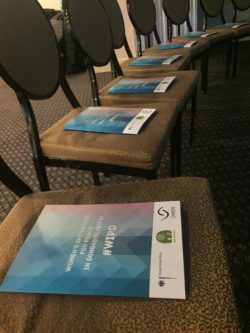Problem

#WIPD
The conflict in Donbas that is already lasts for the fifth year, not only sets apart controlled and uncontrolled territories, but first of all alienates people leaving on the different sides of the conflict line. The economic blockade, problems with crossing of the checkpoints, complicated procedure of pensions receiving for people living in the Certain Districts of Donetsk and Luhansk Oblasts do not favour to conflict regulation. At the same time, hate speeches and enemy images regarding the representatives of the “other side” of the conflict, that circulate on either groups, twist the knife and move away the approach of peace. All this happen under the hybrid external influence of the Russian Federation that makes a point to use this situation in its interests, hampering the resilience of the country.
The personal meetings on the neutral territory and secure location, and participation in the dialogue contribute to the interpersonal understanding among those who found themselves on the different sides of the conflict line. The dialogue helps to build the confidence between the representatives of the different conflict groups, to de-construct the enemy images, to re-humanise the representatives of the “other sides” and to build the personal relations among the participants. Moreover, the dialogue is a powerful instrument for analysing the conflict situation, fears and expectations of people that later helps to elaborate the appropriate policies and approaches to re-integration policy of Ukraine and conflict resolution in the region.
To deal with the mentioned challenges the group of civil society representatives from four countries (Ukraine, Germany, Russia and Switzerland) initiated the creation of the “Women’s Initiatives for Peace in Donbas(s)” dialogue platform, that was launched in autumn 2016.
Project’s aim
Building of the standing dialogue civil society platform “Women’s Initiatives for the Peace in Donbas(s) – WIPD.
Project term
Phase I: July 2016 – December 2017
Phase II: April 2018 – March 2020
Project’s objectives
Peace and confidence building:
- to establish relationships between representatives from different conflict sides;
- to offer methods to decrease tensions and for de-mythologisation of fears and enemy images;
- to analyse expectations and needs in order to find common constructive resolutions to urgent problems.
Empowerment and participation:
- to give civil society from different parties to the conflict a voice to be heard by the other sides to the conflict, and by the international community;
- to make members of the local population from the conflict zones and other parties to the conflict aware of their roles, and to show options for participation in peacebuilding;
- to identify potential actors for peaceful development in the region.
Key actors
All the key actors are women:
- Ukrainian activists
- Internally displaced persons (IDPs) in Ukraine
- Residents of the certain areas of Donetsk and Luhansk oblasts
- Ukrainian refugees in Russia
- Russian activists
- Representatives of the international community
What makes the project to differ from the others
- Peacebuilding approach
- Dialogue methods
- Diapraxis
- Grassroots level (track two and three)
- Gender focus
Diapraxis
Diapraxis (means a dialogue through praxis) is joint action that specifically addresses conflict issues.
Between the Dialogue meetings the WIPD participants initiate joint peacebuilding mini-initiatives in their local communities, which are supported by the project. The key issue is that the mini-initiative should be initiated and implemented by at least two WIPD representatives from different target groups.
What we have already done?
- held six Dialogue meetings
- the WIPD participants has implemented around 25 joint mini-initiatives
- held WIPD presentation and expert discussion “From Dialogue to Joint Actions: Is It Possible to Overcome the Public Split in the Conflict in Donbas?” on November 22, 2018 in Kyiv (Ukraine)
- majority of the participants and WIPD team members successfully completed the Negotiations Skill Training Course held by the Clingendael – the Netherlands Institute of International Relations
- established contacts among the representatives of different target groups
- determined the growth points
What we plan to do more?
- to hold one more Dialogue meeting in 2019
- to hold a seminar-conference for a wider public in order to share experiences from the WIPD-project in Russia and international conference in a European country
- to continue support and implementation of joint mini-initiatives by the participants
- to propose new trainings on dialogue and facilitation for the participants and team members to increase the capacities of the WIPD platform
- to held number of meetings of the thematic working groups
- to distribute the scholarships for the participants to develop and strengthen their peacebuilding skills
Partners

OWEN
OWEN – Mobile Academy of Gender Democracy and Peacebuilding (Berlin, Germany). OWEN is a women’s organization engaged in promotion of the women’s participation in peace processes, especially on track 3 and those focusing on UN Security Council Resolution #1325 “Women. Peace. Security”.
Besides, the peacebuilding and gender experts from Switzerland, Russia and expert, responsible for the certain areas of Donetsk and Luhansk oblast.
Supporters
The project is funded by the German Federal Foreign Office since 2016.
In 2017 the project was partly supported by the Ministry for Foreign Affairs of Sweden.
In 2018 the project’s educational component was supported by the Clingendael – the Netherlands Institute of International Relations.
For more information please visit
https://www.frient.de/en/blogdata/tj-blog/red-lights-and-diapraxis